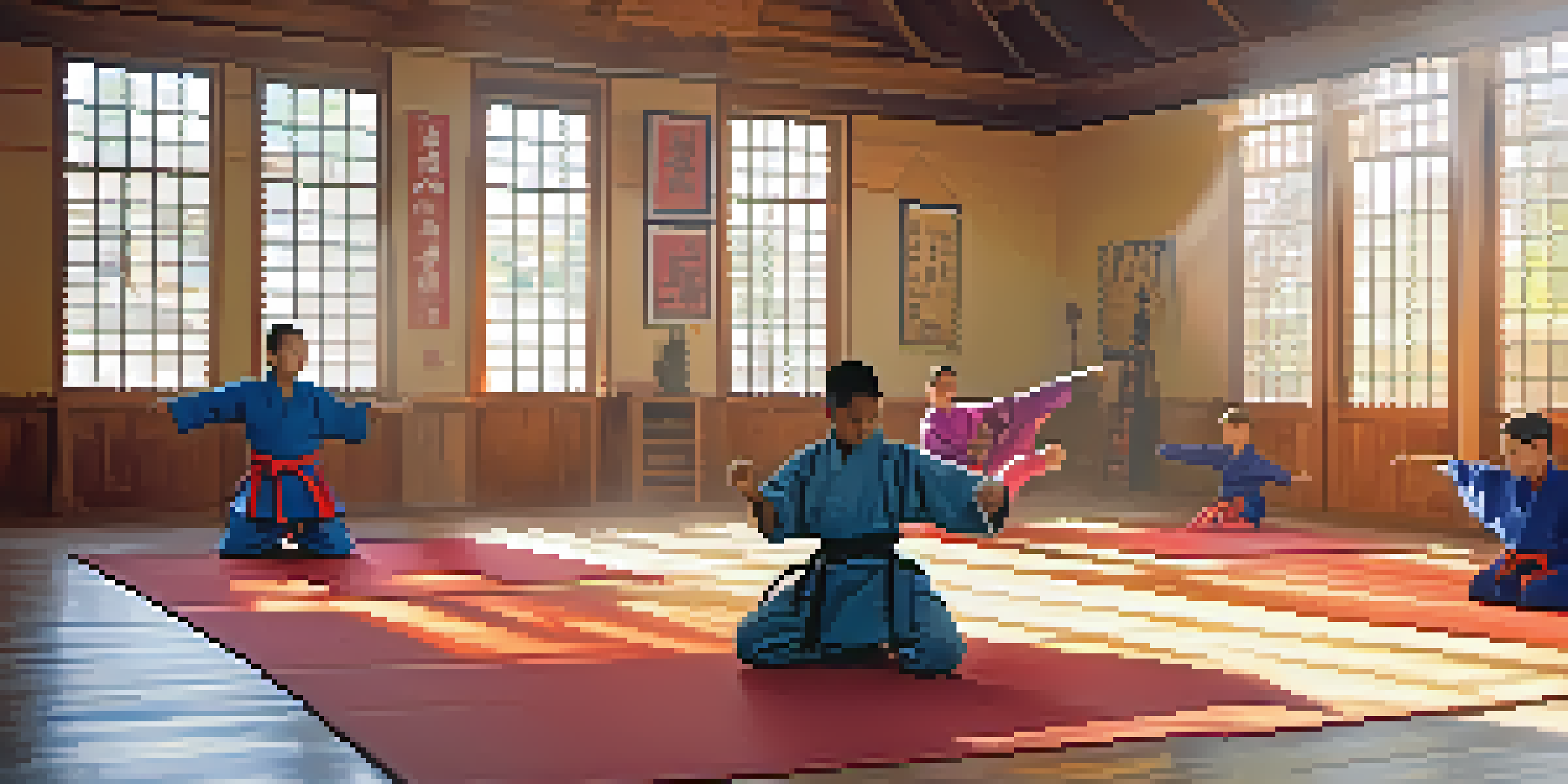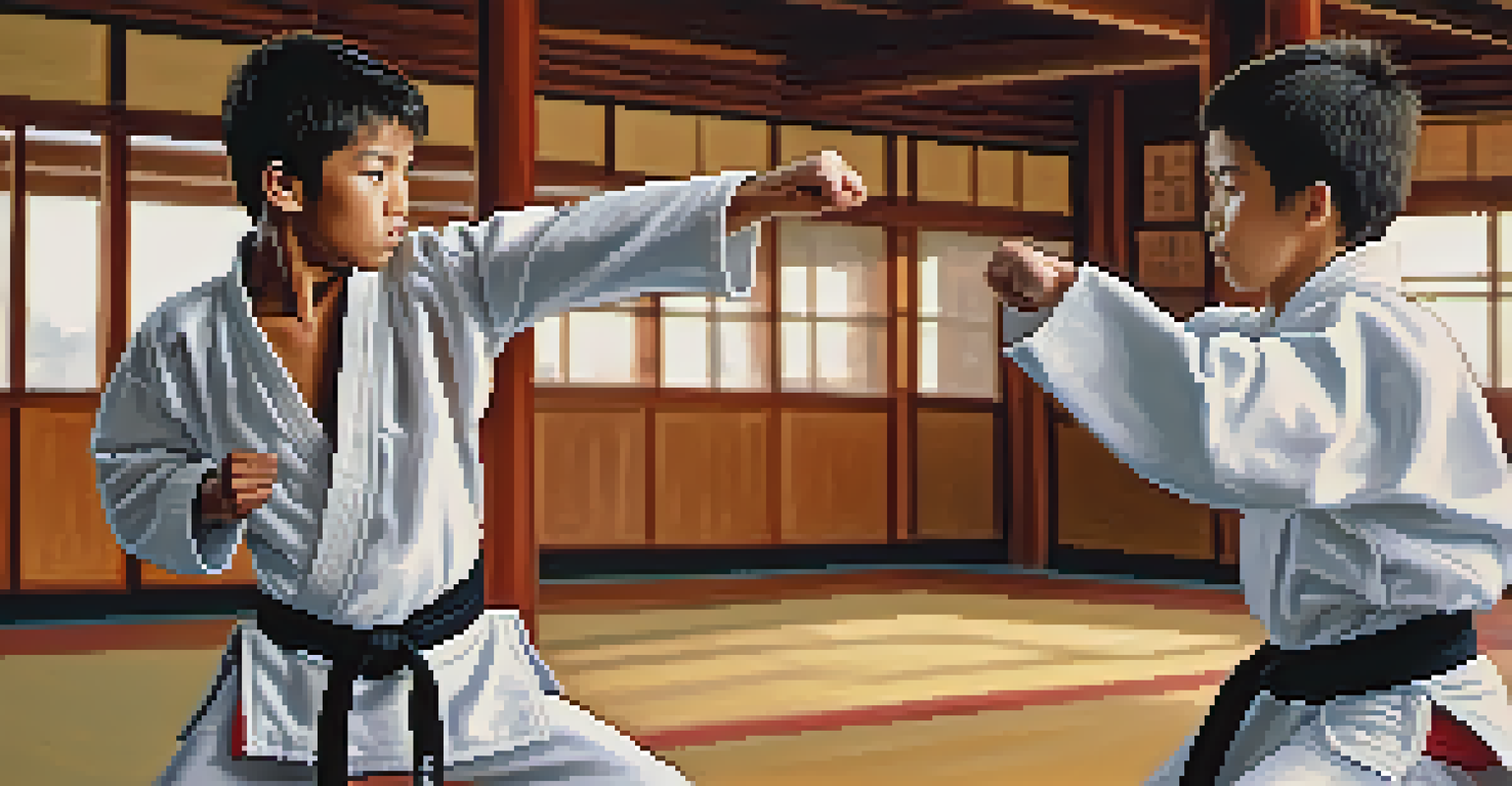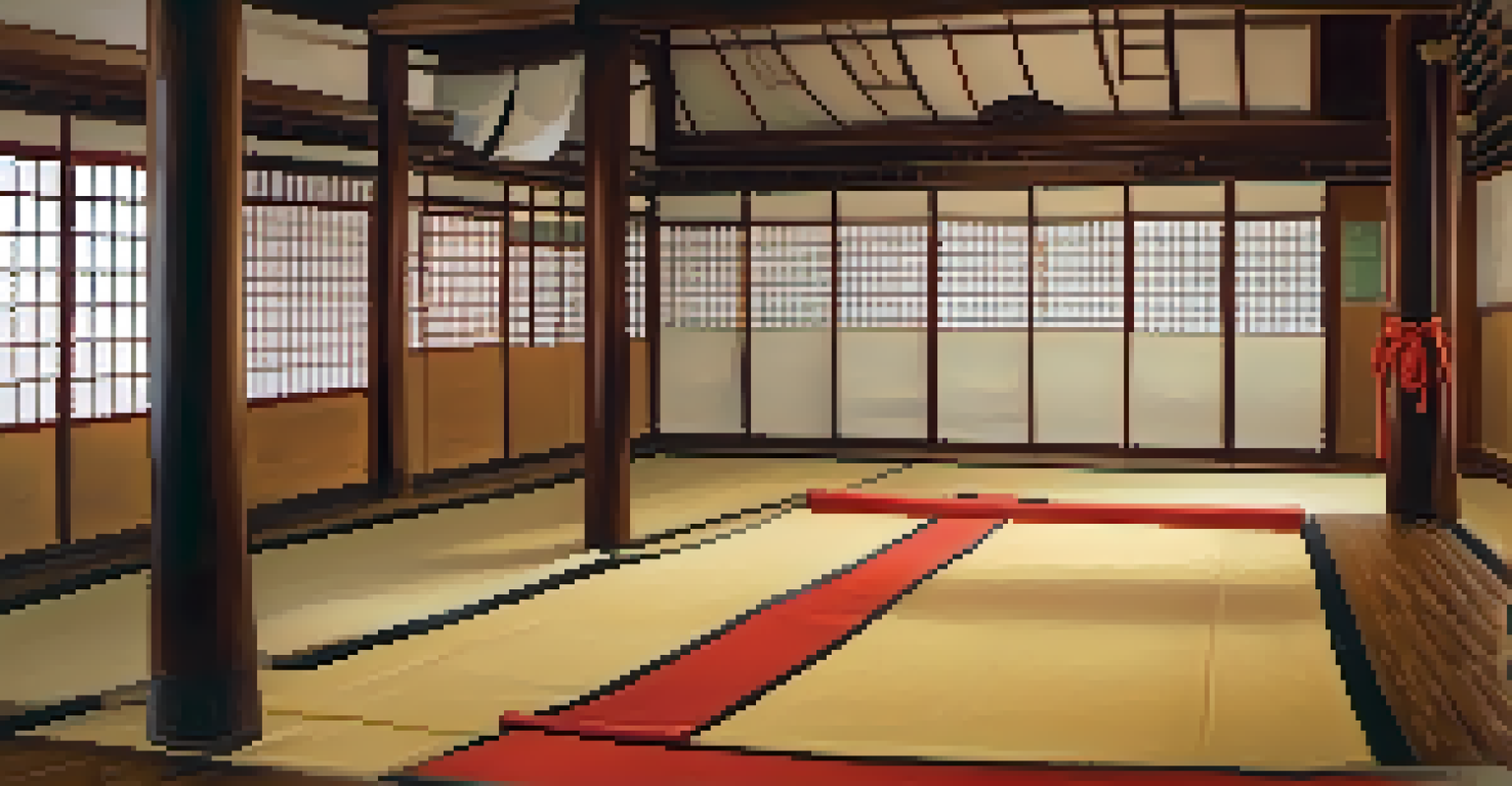Social Skills: Martial Arts Foster Positive Peer Interactions

Understanding Social Skills in Martial Arts Training
Social skills are the tools we use to communicate and interact with others effectively. In martial arts, these skills are nurtured through structured training and shared experiences. Each class offers a unique environment where students learn the importance of respect, teamwork, and empathy.
The greatest glory in living lies not in never falling, but in rising every time we fall.
For instance, practicing techniques with a partner helps students develop non-verbal communication skills. They learn to read body language and respond appropriately, which is crucial in fostering meaningful connections. This hands-on approach makes social skills feel more accessible and applicable.
Moreover, martial arts emphasize the value of discipline and patience, essential components of any positive interaction. As students progress, they not only improve physically but also cultivate social awareness, leading to enhanced interactions with peers both inside and outside the dojo.
Building Confidence Through Martial Arts
Confidence is a key ingredient in forming positive relationships, and martial arts training is a powerful confidence builder. As students achieve new skills and earn belts, they experience a sense of accomplishment that translates to other areas of life. This newfound confidence can make it easier to engage with peers.

Imagine a shy child who struggles to make friends but finds their footing in martial arts. As they learn to master a technique, they gain the courage to introduce themselves to others in class. This scenario highlights how martial arts can serve as a springboard for social interactions.
Martial Arts Foster Social Skills
Through structured training, students develop essential social skills like respect, teamwork, and empathy.
Additionally, the supportive environment of martial arts classes fosters camaraderie among students. They cheer each other on, which not only boosts individual confidence but also strengthens group bonds, making it easier for students to connect with one another outside of training.
Developing Empathy Through Teamwork
Empathy, the ability to understand and share the feelings of others, is a vital social skill that martial arts help develop. Many martial arts emphasize partner work, where students must be attuned to each other's needs and abilities. This collaborative effort encourages students to put themselves in others' shoes.
Strength does not come from physical capacity. It comes from an indomitable will.
For example, during sparring sessions, practitioners learn to gauge their partner's skill level and adjust their approach accordingly. This not only promotes safety but also teaches the importance of considering how actions affect others. Such experiences can lead to deeper emotional intelligence.
By regularly practicing with different partners, students expand their understanding of diverse perspectives. This exposure can enhance their ability to relate to peers in various social situations, making them more compassionate and understanding individuals.
Conflict Resolution Skills in Martial Arts
Conflict is a natural part of any social interaction, but martial arts provide tools for effective resolution. Training often involves scenarios where students must navigate disagreements or competitive situations, teaching them how to handle conflicts constructively. This skill is invaluable in everyday life.
Through guided experiences, students learn techniques to manage escalating tensions. They practice staying calm, communicating clearly, and finding mutually agreeable solutions. These methods can transform how individuals approach conflicts in their personal and academic lives.
Confidence Grows with Achievement
As students progress in martial arts, their sense of accomplishment builds confidence that positively affects their social interactions.
Additionally, the dojo is a safe space to make mistakes and learn from them. This environment encourages students to see conflict not as a failure but as an opportunity for growth and understanding, which can positively influence their interactions with peers.
Encouraging Respect and Humility
Respect and humility are foundational values in martial arts, instilled from the very first class. Students are taught to respect their instructors, peers, and the art itself. This emphasis on respect translates into their everyday interactions, fostering a culture of kindness and consideration.
For instance, bowing before entering the dojo is not just a formality; it symbolizes respect for the space and those within it. This simple act reinforces the importance of acknowledging others, which can enhance social dynamics in various situations.
Moreover, humility is cultivated through recognizing that there is always more to learn. Students are encouraged to support one another in their journeys, celebrating each other's successes. This supportive attitude promotes a positive peer environment where everyone feels valued.
Creating Lasting Friendships Through Shared Experiences
Martial arts classes often create a unique bond among participants, thanks to shared experiences and challenges. The journey of learning together fosters friendships that can last a lifetime. These connections often extend beyond the dojo, as students support each other in various aspects of life.
Consider the friendships formed during belt testing or tournaments, where students face similar pressures and triumphs. These moments create a sense of belonging and community that encourages deeper connections. Having someone who understands your challenges can make all the difference.
Shared Experiences Build Friendships
The challenges faced in martial arts classes create lasting bonds among participants, enhancing their social connections both inside and outside the dojo.
As students continue their martial arts journey together, they build trust and loyalty. This network of friendships can provide emotional support and improve social skills, making it easier to navigate relationships outside the martial arts world.
The Lifelong Benefits of Martial Arts on Social Skills
The benefits of martial arts extend far beyond the dojo, influencing students' social skills throughout their lives. The lessons learned in class—confidence, empathy, respect—become ingrained, shaping how individuals interact with others in various settings. These skills can lead to more fulfilling relationships.
For example, a teenager who has practiced martial arts may find it easier to connect with peers at school, participate in group projects, or even lead discussions. The confidence gained from training translates to a stronger presence in social settings, making them more approachable and engaging.

Ultimately, martial arts equip individuals with the tools they need to navigate the complexities of social interactions. Whether it's making new friends or resolving conflicts, these skills foster a positive environment that benefits everyone involved, emphasizing the importance of community and connection.